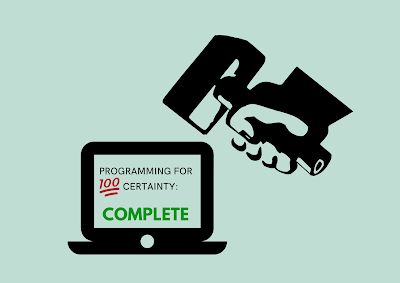Progressive Thinking: Cutting Off Old, Fixed, Harmful Thinking Patterns and Certainty Culture
A few years ago, I watched a YouTube video that inspired me to stop obsessing over certainties. Sara K (that's the name of the content creator) offers a lot of wisdom that often helps me to navigate murky waters, especially with the lessons she's learned in her own life that I can relate to. She mentioned some things I really needed to ponder on that day and oftentimes since.
Switching Timelines – Dispelling a Certainty Mindset
We go through seasons when we have to switch timelines; we
either go back to an old version of us (regression) or enter a new
chapter/phase where everything is new. Or sometimes we find out we never
switched from one timeline, say, maybe we stayed attached to ideals or
possessions we had when we were fourteen years old. She also said she got stuck
in that timeline because of the loss of a loved one. I think that's important
because I've heard some people talk about how they regress into their old
selves, to how they were when their loved one was still with them.
At that moment, I needed the reminder that nothing in life
is certain. I have regressed many times and will probably do the same a couple
more times again in the future. Some of the BS I used to swear by is no longer
true to me. Some of the people I used to put on a pedestal are now nobodys to
me. By the same token, I'm sure many of what I told people are no longer true
for them and I am now a nobody to them. That's just the way it is.
And it got me thinking. Why do I have to always be certain?
Why do I have to be right? Why can't I just revel in the beautiful mystery that
is most things and ideas? Why can't I just accept that my mind cannot
encapsulate the ridiculous capacity of being one hundred percent right or
correct all the time? Why can't I be progressive
– meaning open to learning,
unlearning, and relearning all the time?
Progressive Thinking and Its Opposite
Progressive thinking helps when we feel stuck in age-old
thinking patterns and belief systems that are more harmful than beneficial. On my last
blog post, I mentioned how my dad and a lot of parents from the boomer
generation believed and still believe to this day that there is no such thing
as abuse where disciplining a child is concerned. Whether their reason for
habitually hitting, beating, and berating their children is a result of blind
faith (biblical) or an act of projection (passing on to their children what they
experienced from their parents), we now know – hopefully they do too – that any
form of physical harm done to anybody to coerce them into submission or to
serve as an outlet for a parent's rage is primitive, barbaric, and abusive.
As we become more progressive and adaptive to growth and
learning, we begin to question people and institutions that claim to know the
only right way as well as ancient thought processes designed by people who did
not experience the life we have lived so far and what we are currently living
through. We begin to see how having an ethos fixated on making sure we know
everything and we’re always right is not only dangerous but can haplessly
transcend generations, hence the Tagalog saying, “Pinanganak akong ganito;
mamamatay akong ganito.” (I was born with
this mindset; I will die with this mindset.) All that says is that we have
not grown one bit and we refuse
to do so until our last breath.
Finding Comfort in Moments of Uncertainty
Going back to how we sometimes find solace in returning to
our old selves for moments of time, I think it is natural and, in a sense,
redemptive. I know that sometimes reaching inside to send a message to the
twelve-year-old me, to let her know she's going to be okay, to dream of someday
making her proud makes me feel somewhat gratified and hopeful.
I’m learning day by day that there is a way to experience a
feeling of hope without the silly expectation of certainty being guaranteed. Letting
things fall into place no matter the outcome doesn’t always mean we are resigned
to a mediocre fate or that we are settling. It can mean we’re doing our best
with whatever we have and know while simultaneously allowing nature to take its
course, even if it means we would have to take that leap of faith from time to
time.




Comments
Post a Comment